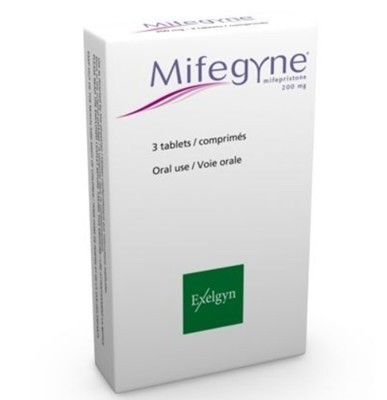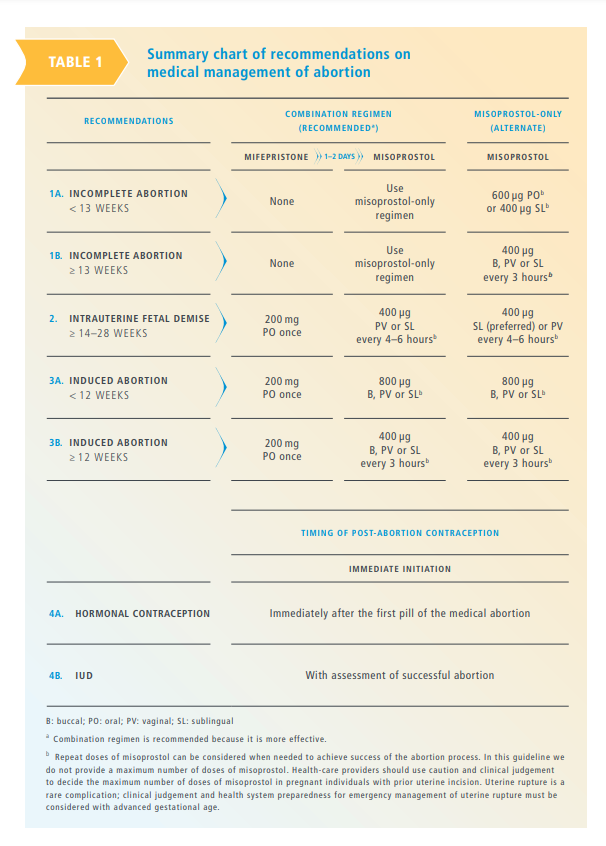Abortion was legalized in Korea on January 1, 2021, but the use of the abortion medicine ‘Mifepristone’ remains illegal. Mifepristone is an antiprogestational steroid that blocks the production of progesterone, a necessary component for pregnancy. With the legalization of abortion, the number of women seeking out abortion pills such as Mifepristone has increased. However, the substance remains illegal according to the Ministry of Health and Welfare and Ministry of Food and Drug Safety. This forces women to obtain the drug illegally, putting their lives at risk. The safety of illegally obtained drugs are not guaranteed. Therefore, I assert that Mifepristone should be legalized in Korea for the following three reasons. It further guarantees the reproductive rights of women, it would ensure the drug is safe for use and it can be taken under the supervision of a qualified physician.
 |
| ▲ Mifegyne, a representative product of abortion medicine (Photo from Korea Biomedical Review) |
First, the legalization and introduction of Mifepristone in Korea is a step closer to guaranteeing women’s reproductive right. Reproduction refers human reproductive activities such as pregnancy and childbirth. The basic human right to control your reproductive system can be further enhanced through the introduction of Mifepristone. It is currently legal in more than 70 countries worldwide and is designated as an essential drug by the World Health Organization (WHO), but it remains banned in Korea.
Next, women who need this medicine are forced to seek it out overseas or on the black market. The safety of the medicine obtained in these ways cannot be guaranteed as their production and sale are not tracked by any officials. Taking this medicine puts women at risk of unrelated health problems. By legalizing Mifepristone, the health and safety of users would be prioritized and enhanced.
Finally, Mifepristone should be legalized so that pregnant women can take it under the direction of a medical specialist. According to WHO recommendations, Mifepristone should only be taken under the supervision of a medical specialist who can determine whether or not it is safe for the pregnant women to use. This is due to the potential side effects of the drug such as an allergic reaction, pain, nausea and excessive uterine bleeding. These symptoms require the care of medical specialist and if access to the drug remains illegal, women who take the product illicitly are not guaranteed access to proper treatment for these dangerous side effects.
 |
| ▲ WHO's recommendations on medical management of abortion. A medical specialist is needed to know the detailed condition of pregnant women. (Photo from WHO's report on 'Medical management of abortion') |
Despite these valid reasons for the legalization of the drug, there are people who oppose it coming to market in the country. Their major concerns are due to the side effects and dangers of Mifepristone. However, the safety of the drug has already been verified abroad. The WHO designated it as essential since 2005 and insists it should be allowed for women’s health and rights. In addition, it has a high success rate, and its use up to seven weeks of pregnancy has been determined as safer than an abortion surgery. In fact, its safety has been confirmed for up to nine weeks of pregnancy. The WHO also said that the severity of the side effects is decreased substantially if taken under the supervision of a medical specialist. Moreover, abortion pills such as Mifepristone are illegal in Korea and for that to change, there would have to be sufficient safety checks completed. The Ministry of Food and Drug Safety would require our own safety and risk tests proving the drug has the same effects on Koreans. In other words, if Mifepristone is legally distributed in Korea, sufficient safety checks will have been made for its use by Korean women seeking to terminate their pregnancy.
In sum, I believe that Mifepristone should be legalized to further guarantee women’s reproductive rights, to ensure the drug they are taking is safe to use and for the added security of taking the substance under the supervision of a qualified medical professional. Fortunately, news of the potential distribution of Mifepristone in Korea is beginning to stir. Hyundaipharm recently signed a contract for the domestic rights and exclusive supply of the drug with the British pharmaceutical company Linepharma International and is currently discussing its official introduction in Korea with the Ministry of Food and Drug Safety. I affirm that it should be approved as soon as possible and supplied to women in need. However, counseling with a specialist should be mandatory because no matter how safe abortion pills and procedures are, there risks and side effects on the body remain.
오유준 dankookherald@gmail.com

 Vote for the Campus Brand Naming!
Vote for the Campus Brand Naming!

![[Campus Magnifier] Let's Surf the Library!](/news/thumbnail/202404/12496_1765_4143_v150.jpg)




